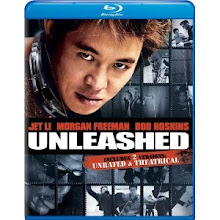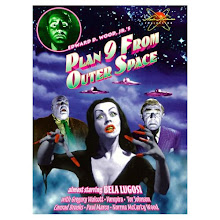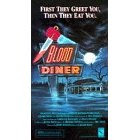Sunday, January 31, 2010
"Perfume" thoughts by Andy
I think one of the things that makes the character so creepy is that he didn't actually need to kill to do his work, but he was so motivated by the need to create and capture scent that he couldn't handle any delay in getting it. It was easier for him to just kill a woman, do his work, and dump the body, than to try and convince her to let him do his work. He tried once with the prostitute, but he didn't have the social skills to convince her to do it. He could have been totally non-threatening, but he didn't care to be so. He didn't get joy out of killing, at it was completely unnecessary to him, but it was the easiest way.
comments by Andy
Chop Shop - comments by Andy
"Chop Shop" was wonderfully heartbreaking. It's one of those stories where you knew something terrible was going to happen, and you were constantly bracing yourself for that bad thing to happen. I thought for sure that the money he and his sister was saving was going to be stolen. I'm not sure that his luck was much worse.
It also explained a lot about breeding criminal culture. I wish it would have ended up a little better though. It didn't leave me feeling great about humanity or America.
Thursday, January 21, 2010
Chop Shop Is a Slice of Life — but That’s All
by Jason Pyles
“Chop Shop” can be used to illustrate an important distinction, or at least a clarification, in viewer tastes. Many moviegoers (myself previously included) believe they want to see realism in their motion picture entertainment, but that’s not quite accurate.
Few people lead lives like those found in movies. For the most part, realism reflects the average, everyday life of the common man or woman. It’s that same basic monotony — “the old grind” — that each of us faces daily.
That’s realism, and that’s not really what we’re interested in seeing when we go to the movies, because we live it every day for ourselves. What we want are fictitious stories where extraordinary events happen to ordinary people who must rise to the occasion to overcome them ... or not. We want this dramatic narrative, but we want it depicted realistically — at least I do. So what I truly want to see is realistic fiction, not realism.
Akin to Italian neorealism and neorealism in general, “Chop Shop” gives us slice-of-life reality but without the high-intensity dramatic conflicts. We, as observers, are given fly-on-the-wall perspective that we might peer into the ordinary lives of other ordinary people, much like ourselves. We take a brief break from our struggles for a while to witness somebody else’s.
“Chop Shop” delivers true realism — and it’s intriguingly believable — but not overly entertaining. I kept waiting (and hoping) for a gun to enter the film and for someone to get shot. Not that I like to see people get hurt, but I kept hoping for some more out-of-the-ordinary drama.
“Chop Shop” is impressive in its execution and delivery. Indeed, it calls back to the Lumiere brothers’ early “actualities,” like “The Arrival of the Mail Train” (1896), where we’re given moments of life, recorded in time, like moving photographs or “motion pictures.” But like those films, after a while “Chop Shop” wears thin and holds little water with such a shallow story that lacks dramatic conflict.





























































